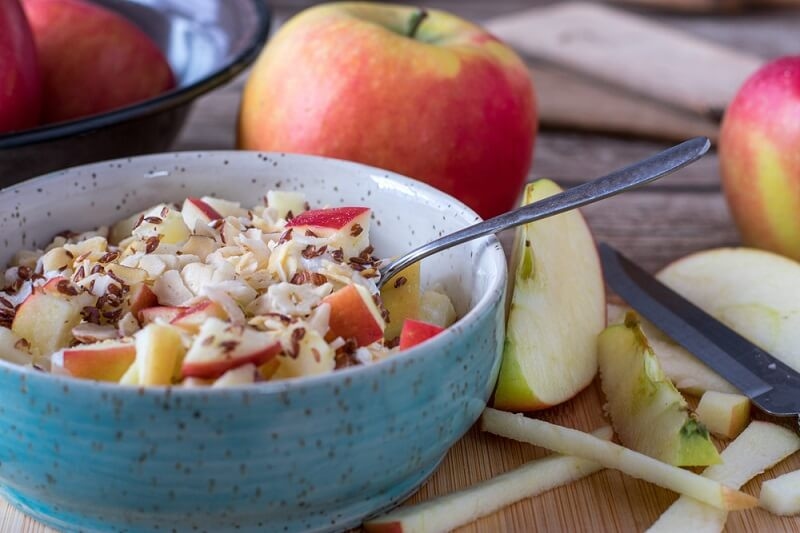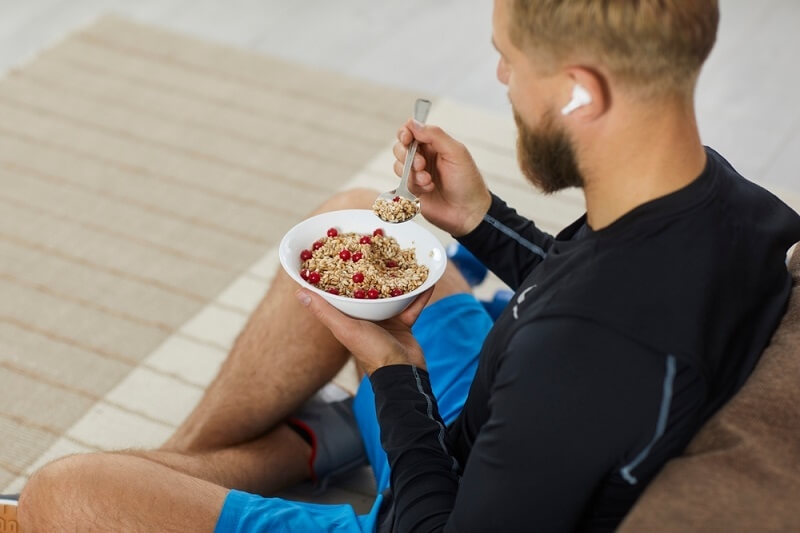Optimal Pre-Workout Fuel: What to Eat Before a Workout

When it comes to optimizing your workout, it's not just about hitting the gym with the right attitude and intensity; it's also about fueling your body correctly. Pre-workout nutrition is the key to enhancing your performance, whether you're a seasoned athlete or just starting your fitness journey. Let's get into workout nutrition and provide valuable insights on what to eat before a workout.
What is Pre-Workout Nutrition?
Pre-workout nutrition is the science of fueling your body for optimal physical performance. It involves the consumption of specific nutrients in the right quantities and at the correct times to meet the demands of physical activity. Proper pre-workout nutrition focuses on enhancing athletic performance, aiding recovery, and promoting overall health.
Proper nutrition takes into account the individual's goals, body type, and the type and intensity of the exercise. It's a science that balances macronutrients, such as carbohydrates, proteins, and fats, and micronutrients, such as vitamins and minerals, to provide the energy and support needed for exercise and recovery.
Why is Pre-Workout Nutrition Important?
Pre-workout nutrition is vital for several reasons:
a. Enhanced Performance: Proper nutrition can improve your strength, endurance, and agility, helping you achieve your fitness goals. It gives the body the necessary fuel to optimize muscle function and energy production.
b. Faster Recovery: Proper nutrition reduces post-exercise fatigue and muscle soreness, enabling you to bounce back more quickly. It helps repair damaged muscle tissue and replenishes glycogen stores.
c. Injury Prevention: Adequate nutrients can help prevent injuries by maintaining bone health and muscle function. It also supports the immune system, reducing the risk of illness that could interrupt training.
d. Weight Management: Pre-workout nutrition can help you maintain or achieve a healthy weight, essential for overall well-being. Balancing calorie intake and expenditure is crucial for achieving fitness goals.
Which Foods Should Be Eaten for Fitness?

To optimize your workouts, consider including the following top foods for fitness:
- Complex Carbohydrates: Carbohydrates are the body's primary energy source. Oats, brown rice, sweet potatoes, and whole grains provide a steady energy source for your workout.
- Lean Proteins: Protein is essential for muscle repair and growth. Include chicken, turkey, fish, lean beef, tofu, and legumes.
- Healthy Fats: Healthy fats, such as those found in avocados, nuts, and olive oil, offer sustained energy and help absorb fat-soluble vitamins like A, D, E, and K.
- Fruits: Fruits are packed with vitamins, minerals, and quick-release carbohydrates. Bananas, berries, and oranges are excellent choices to fuel your workout.
- Vegetables: Broccoli, spinach, kale, and other leafy greens offer fiber, vitamins, and minerals. They also contribute to overall health and digestion.
- Greek yogurt is high in protein and probiotics, which aid digestion and muscle recovery.
- Eggs: Eggs are a great source of protein and contain all essential amino acids. They are versatile and can be included in various dishes.
- Whole Grains: Foods like quinoa, whole wheat, and bulgur provide a mix of nutrients for sustained energy. They also contain fiber, which aids in digestion.
- Lean Beef: Red meat, like lean beef, is rich in iron and zinc, which are crucial for muscle function and recovery. It also provides vitamin B12.
- Water: Staying hydrated is essential for maintaining energy levels and avoiding dehydration. Drink water before, during, and after your workout.
Exercising Before or After Eating?
The timing of your Pre-Workout Nutrition is crucial, as it can affect your performance. It largely depends on your individual preferences, workout routine, and the type of exercise you'll be doing.
- Eating Before Consuming a balanced meal 1-2 hours before exercise provides your body with the necessary energy and nutrients. It can enhance your performance and reduce the risk of muscle breakdown during intense workouts.
- Fasting Before Some people prefer working out on an empty stomach, which can encourage the body to use stored fat for energy. This approach may be suitable for those engaging in moderate-intensity exercises, but it could be better for high-intensity workouts.
In general, if you eat before your workout, consider a balanced meal consisting of carbohydrates, proteins, and fats. For those who prefer fasting, please stay hydrated and consume a well-rounded meal afterward to help you recover.
Snacks to Avoid Before Workouts
Certain foods and snacks should be avoided before your workout, as they can lead to discomfort, reduced performance, or energy crashes. Steer clear of:
a. High-Fat Foods: Foods high in fat can slow digestion and make you sluggish during your workout. Avoid heavy fried foods and greasy snacks.
b. Sugary Foods: Foods high in sugar can lead to an energy crash during exercise. While sugar can provide a quick energy boost, it is usually short-lived and followed by a crash.
c. Spicy or Heavy Meals: Spicy and heavy meals can cause digestive discomfort, bloating, and cramping during exercise. Avoid foods that may upset your stomach or lead to indigestion.
The Timing of Pre-Workout Meals is Key
The timing of your pre-workout nutrition or snack is crucial and can significantly impact your performance. The right timing depends on your preferences and the type of exercise you'll be doing. Here are some general guidelines:
- Large Meal (2-3 hours before): Consume a balanced meal rich in carbohydrates, proteins, and healthy fats. This allows for digestion and nutrient absorption, providing sustained energy during your workout.
- Small Snack (1-2 hours before): Opt for a light snack if you can't eat a full meal a few hours before your workout. Include a mix of carbohydrates and proteins to provide energy without causing digestive discomfort.
- Quick Snack (30 minutes before): If you're in a rush or have a high-intensity workout, a small, carbohydrate-rich snack like a banana or an energy bar can provide a quick energy boost.
Remember that the timing of your pre-workout nutrition should align with your body's digestive processes. Experiment with different timing options to discover what works best for you and your workout routine.
Useful Supplements Before Exercise
While a balanced diet provides the nutritional needs, some supplements can be beneficial before a workout. These supplements are not meant to replace whole foods but can be used to complement your diet and enhance performance.
a. Creatine: Creatine is a naturally occurring compound that can enhance strength and power during short bursts of intense exercise. It helps replenish the body's adenosine triphosphate (ATP) stores, a primary energy source for muscle contractions.
b. Caffeine: Caffeine is a natural stimulant in coffee, tea, and various energy supplements. It can improve alertness and reduce the perception of effort during exercise. Caffeine can also boost endurance and performance in endurance-based activities like long-distance running or cycling.
c. Branched-Chain Amino Acids (BCAAs): BCAAs, including leucine, isoleucine, and valine, are essential amino acids that play a role in muscle recovery and reducing muscle soreness. They can be consumed as supplements or found naturally in meat, dairy, and legumes.
Always consult a healthcare professional before starting any supplementation regimen. While these supplements can provide benefits, they may only be necessary for some and may have potential side effects.
Conclusion
Pre-workout nutrition plays a significant role in optimizing your physical performance and, overall, adding the right food for fitness. By carefully selecting the proper pre-workout nutrition and timing your meals correctly, you can make a substantial difference in your energy levels and the quality of your workouts. What you eat before an activity can differ between a lackluster session and an energized, successful one. So, fuel up, stay hydrated, and conquer your fitness goals with the power of proper nutrition. Everybody is different, so experiment and listen to your body's cues to find the best approach.
This content was created by AI
-1717753922-r.jpg)